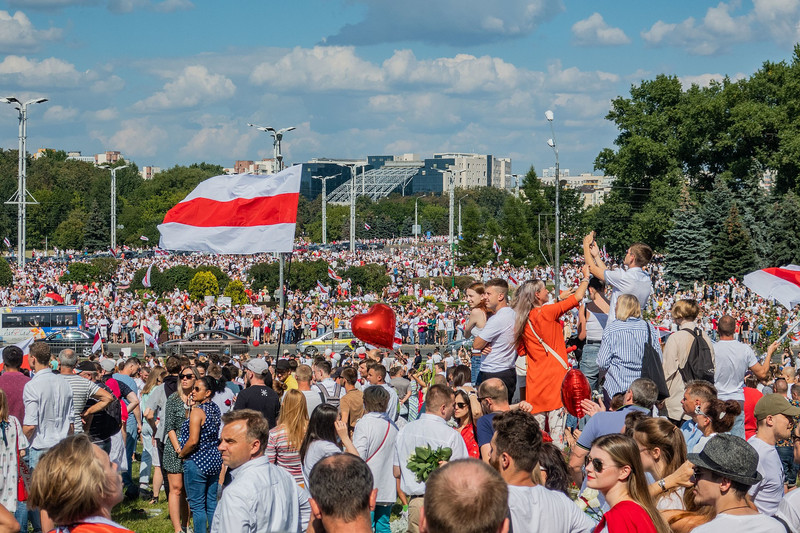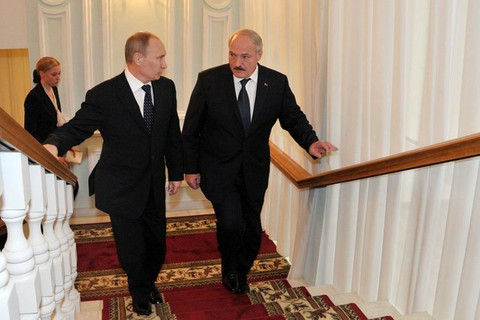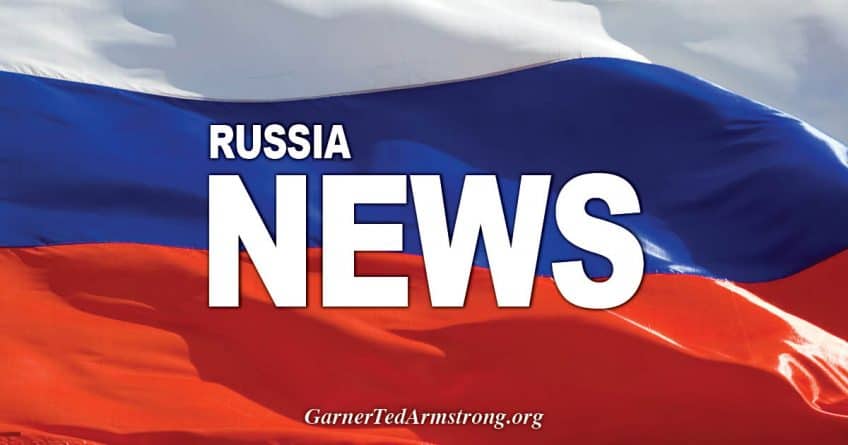
Large outdoor protests in the Belarus capital Minsk, on 16 August 2020 (Photo: Prachatai/Flickr)
For many observers, the situation in Belarus has not been developing at the pace they were expecting a week or two ago.
There are still people on the streets who wish to see a free Belarus, but president Alexander Lukashenko has remained in power.

Russian president Vladimir Putin (l) and Belarusian president Alexander Lukashenko (Photo: kremlin.ru)
This situation must be put into context.
Part of the wider picture are the frozen (or quite hot) conflicts in five out of the six former Soviet countries in Europe’s eastern neighbourhood, all of them involving Russia.
The only one without such a conflict is Belarus.
But, unfortunately, an escalation there could lead to similar developments.
The EU has tried to build closer ties with its six neighbours via the Eastern Partnership programme.
But as we saw in Ukraine, conflict disturbs a country’s orientation toward Europe, alters its society, and does much more other harm.
As you might have noticed, many European politicians have praised Russia for keeping a neutral line toward developments in Belarus.
However, this is not the case at all. In fact, Russia is very much present in Belarus.
For instance, if we look at Belarusian power structures – the army, the police, and the security services – most of their leaders have studied in Russian military or police schools, creating personal ties.
In addition, there is, of course, daily cooperation between the Belarusian and Russian administrations, including on the State Union project between the two countries.
Because of the State Union, there is comprehensive cooperation between the two armed and security forces.
According to the agreement, Lukashenko can call on Russian security forces for help if needed. And if necessary, he will use this opportunity.
The Belarusian economy is also strongly tied to Russia.
And any attempts at rapid economic restructuring after a change of power in Belarus would also meet a strong Russian counter-reaction.
All of these factors are crucial in the Belarusian situation.
In this context, a genuine movement towards a free society and even the announcement of new presidential elections can only happen if Belarusian people continue to be strong and consistent in their demands, without letting the protests fade away.
At the same time, the regime is making it more difficult by arresting opposition leaders and by firing people from their jobs for protesting.
Even so, the key to change lies within Belarus’ own people and civil society.
Role of Europe
We must ask ourselves, what should be the role of Europe and the EU in this context?
Firstly, Europe cannot be naive about the role of Russia in Belarus.
Secondly, it is time to stop allowing Lukashenko manipulate Europe.
This is something he has been doing for over 20 years and it needs to end.
Instead, we must show consistency and principles in our demands for free and fair elections and for ending political repressions.
We need to figure out how to behave with Lukashenko in the new situation in which he is not regarded as the legitimate leader of Belarus anymore.
Contacts with the regime should be kept minimal.
Meanwhile, there are many ways how Europe can support Belarusian civil society – by supporting and spreading free speech, organizing trainings, offering university scholarships, and facilitating travel to EU.
However, the most important role lies in the hands of the Belarusian people, their consistency and future tactical moves in bringing the country closer to a free society.
AUTHOR BIO
Urmas Paet is an MEP with the liberal Renew Europe group and former foreign minister of Estonia.
Source: https://euobserver.com/opinion/149267
[Disclaimer]







